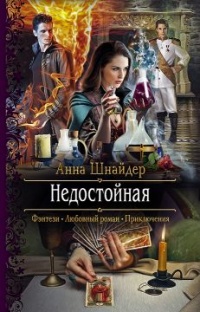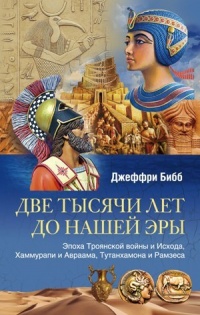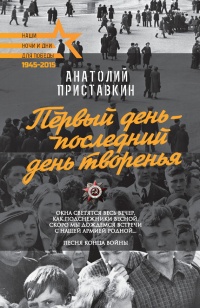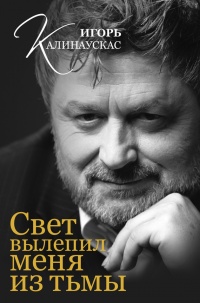Книга Ренессанс. У истоков современности - Стивен Гринблатт
Шрифт:
Интервал:
Закладка:
Dinner Pieces, trans. David Marsh. Binghamton, NY: Medieval and Renaissance Texts and Studies in Conjunction with the Renaissance Society of America, 1987.
Intercenales, ed. Franco Bacchelli and Luca D’Ascia. Bologna: Pendragon, 2003.
Albury, W. R. “Halley’s Ode on the Principia of Newton and the Epicurean Revival in England”, Journal of the History of Ideas 39 (1978), pp. 24–43.
Allen, Don Cameron. “The Rehabilitation of Epicurus and His Theory of Pleasure in the Early Renaissance”, Studies in Philology 41 (1944), pp. 1–15.
Anon. “The Land of Cokaygne”, in Angela M. Lucas, ed., Anglo-Irish Poems of the Middle Ages: The Kildare Poems. Dublin: Columbia Press, 1995.
Aquilecchia, Giovanni. “In Facie Prudentis Relucet Sapientia: Appunti Sulla Letteratura Metoposcopica tra Cinque e Seicento”, Giovan Battista della Porta nell’Europa del Suo Tempo. Naples: Guida, 1990, pp. 199–228.
The Atomists: Leucippus and Democritus: Fragments, trans, and ed. C. C. W. Taylor. Toronto: University of Toronto Press, 1999.
Avrin, Leila. Scribes, Script and Books: The Book Arts from Antiquity to the Renaissance. Chicago and London: American Library Association and the British Library, 1991.
Bacci, P. Cenni Biografici e Religiosita di Poggi Bracciolini. Florence: Enrico Ariani e l’arte della Stampa, 1963.
Bailey, Cyril. The Greek Atomists and Epicurus: A Study. Oxford: Clarendon Press, 1928.
Baker, Eric. Atomism and the Sublime: On the Reception of Epicurus and Lucretius in the Aesthetics of Edmund Burke, Kant, and Schiller. Baltimore: Johns Hopkins University Press, 2001.
Baldini, Umberto. Primavera: The Restoration of Botticelli’s Masterpiece, trans. Mary Fitton. New York: H. N. Abrams, 1986.
Barba, Eugenic “A Chosen Diaspora in the Guts of the Monster”, Tulane Drama Review 46 (2002), pp. 147–53.
Barbour, Reid. English Epicures and Stoics: Ancient Legacies in Early Stuart Culture. Amherst, MA: University of Massachusetts Press, 1998.
Baron, Hans. The Crisis of the Early Italian Renaissance: Civic Humanism and Republican Liberty in the Age of Classicism and Tyranny. Princeton: Princeton University Press, 1955.
Bartsch, Shadi, and Thomas Bartscherer, eds. Erotikon: Essays on Eros, Ancient and Modern. Chicago: University of Chicago Press, 2005.
Beddie, James Stuart. Libraries in the Twelfth Century: Their Catalogues and Contents. Cambridge, MA: Houghton Mifflin, 1929.
“The Ancient Classics in the Medieval Libraries”, Speculum 5 (1930), pp. 1–20.
Beer, Sir Gavin de. Charles Darwin: Evolution by Natural Selection. New York: Doubleday, 1964.
Benedict, St. The Rule of Benedict, trans. Monks of Glenstal Abbey. Dublin: Four Courts Press, 1994.
Bernard of Cluny. “De Notitia Signorum”, in l’abbé Marquard Herrgott, ed., Vetus Disciplina Monastica, Seu Collection Auctorum Ordinis S. Benedicti. Paris: C. Osmont, 1726, pp. 169–73.
Bernhard, Marianne. Stifts-und Klosterbibliotheken. Munich: Keyser, 1983.
Bernstein, John. Shaftesbury, Rousseau, and Kant. Rutherford, NJ: Fairleigh Dickinson University Press, 1980.
Berry, Jessica. “The Pyrrhonian Revival in Montaigne and Nietzsche”, Journal of the History of Ideas 65 (2005), pp. 497–514.
Bertelli, Sergio. “Noterelle Machiavelliane”, Rivista Storica Italiana 73 (1961), pp. 544–57.
Billanovich, Guido. “Veterum Vestigia Vatum: Nei Carmi dei Preumanisti Padovani”, in Giuseppe Billanovich et al., eds., Italia Medioevale e Umanis-tica. Padua: Antenore, 1958.
Biow, Douglas. Doctors, Ambassadors, Secretaries: Humanism and Professions in Renaissance Italy. Chicago: University of Chicago Press, 2002.
Bischhoff, Bernhard. Manuscripts and Libraries in the Age of Charlemagne, trans. Michael M. Gorman. Cambridge: Cambridge University Press, 1994.
Bishop, Paul, ed. Nietzsche and Antiquity: His Reaction and Response to the Classical Tradition. Rochester, NY: Camden House, 2004.
Black, Robert. “The Renaissance and Humanism: Definitions and Origins”, in Jonathan Woolfson, ed., Palgrave Advances in Renaissance Historiography. Houndmills, Basingstoke, UK, and New York: Palgrave Macmillan, 2005, pp. 97–117.
Blades, William. The Enemies of Books. London: Elliot Stock, 1896.
Blondel, Eric. Nietzsche: The Body and Culture, trans. Sean Hand. Stanford: Stanford University Press, 1991.
Boitani, Piero, and Anna Torti, eds. Intellectuals and Writers in Fourteenth-Century Europe. The J. A. W. Benett Memorial Lectures, Perugia, 1984. Tübingen: Gunter Narr, 1986.
Bolgar, R. R., ed. Classical Influences on European Culture, A.D. 1500–1700 . Cambridge: Cambridge University Press, 1976.
Bollack, Mayotte. Lejardin Romain: Epicurisme et Poésie à Rome, ed. Annick Monet. Villeneuve dAsq: Presses de l’Universite Charles-de-Gaulle-Lille 3, 2003.
Benoît de Port-Valais, Saint. Colophons de Manuscrits Occidentaux des Origines au XVIe Siécle/Benedictins du Bouveret. Fribourg: Editions Universitaires, 1965.
Boyd, Clarence Eugene. Public Libraries and Literary Culture in Ancient Rome. Chicago: University of Chicago Press, 1915.
Bracciolini, Poggio. The Facetiae, or Jocose Tales of Poggio. Paris: Isidore Liseux, 1879.
“Epistolae – Liber Primus” in Opera Omnia, ed. Thomas de Tonelli. Turin: Bottega d’Erasmo, 1964.
Two Renaissance Book Hunters: The Letters of Poggius Bracciolini to Nicolaus de Nicolis, trans. Phyllis Walter Goodhart Gordan. New York: Columbia University Press, 1974.
Lettere, ed. Helene Harth. Florence: Leo S. Olschki, 1984.
Un Vieux Doát-Il Se Marier? trans. Véronique Bruez. Paris: Les Belles Lettres, 1998.
La Vera Nobilita. Rome: Salerno Editrice, 1999.
Brady, Thomas, Heiko A. Oberman, and James D. Tracy, eds. Handbook of European History, 1400–1600: Late Middle Ages, Renaissance and Reformation. Leiden: E.J. Brill, 1995.
Brant, Frithiof. Thomas Hobbes’ Mechanical Conception of Nature, trans. Vaughan Maxwell and Anne I. Fansboll. Copenhagen: Levin & Munksgaard, 1928.
Bredekamp, Horst. Botticelli: Primavera. Florenz als Garten der Venus. Frankfurt am Main: Fischer Taschenbuch, 1988.
“Gazing Hands and Blind Spots: Galileo as Draftsman”, in Jürgen Renn, ed., Galileo in Context. Cambridge: Cambridge University Press, 2001, pp. 153–92.

























